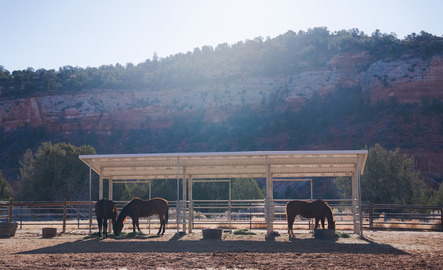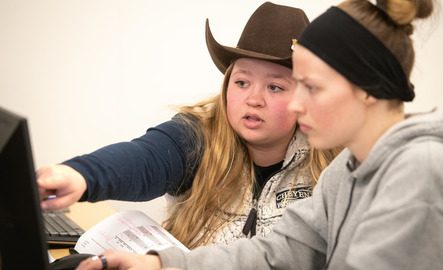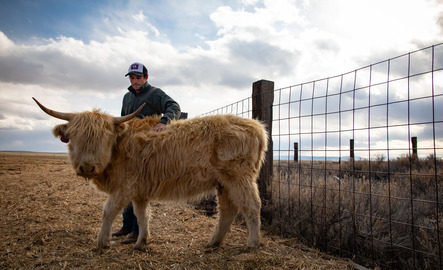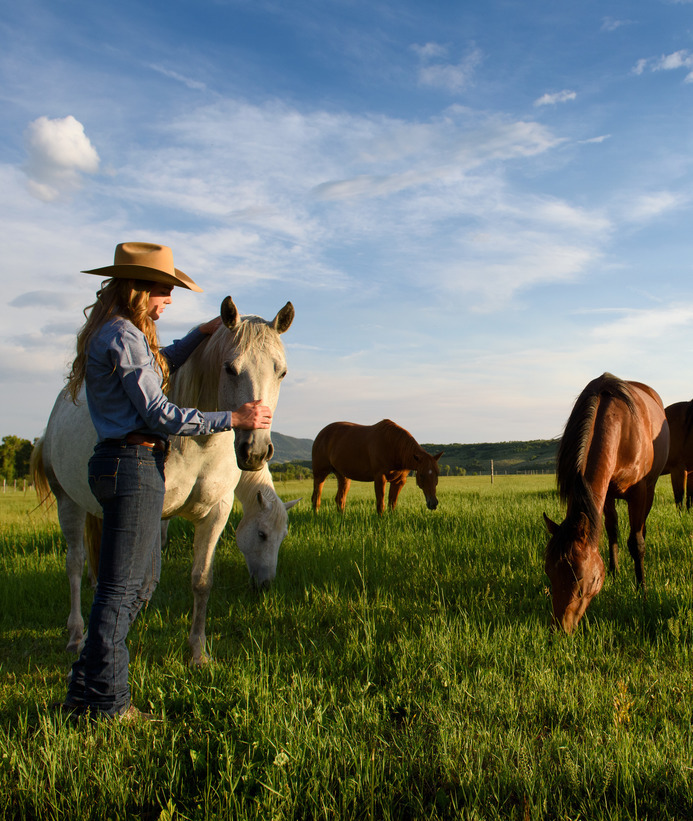What is Ranch Management and Agricultural Leadership?
Ranch Management and Agricultural Leadership (RMAL) is an interdisciplinary program
with significant hands-on opportunities. RMAL majors study an array of specialties
that contribute to successful ranch management and are required by today’s professionals.
Students learn about agricultural leadership and develop exemplary interpersonal skills
by practicing awareness, effective teamwork, and critical thinking. Broadly defined,
RMAL is the blending of resource management, business operations, and problem-solving
for successful stewardship of natural resources and sustainable livestock production.
The competencies identified for this program are highly valued across the agribusiness
industry, Non-Governmental Organizations (NGOs) and state and federal agencies, as
well as providing significant value to family operations.

View the full ranch management and agricultural leadership bachelor's curriculum.
Faculty teaching into the RMAL program are passionate about their areas of expertise
and committed to embedding opportunities for developing leadership skills into their
courses. Their knowledge of field-specific demands helps them support student problem-solving
projects from across the industry spectrum.
To enrich students' experiences and foster a well-rounded skill set, the RMAL program
actively engages in collaborative partnerships with industry innovators, as well as
faculty members from other colleges across campus.

RMAL students take a variety of courses to get a well-rounded education. Some courses
of interest include Public Policy & Regulatory Considerations for Ranch & Rangeland
Management, Advanced Integrated Ranch & Rangeland Problem Solving & Planning and Leadership
& Collaboration Strategies to Address Contemporary Challenges in Agriculture.
By bringing together different areas of study and focusing on how people work together,
the program prepares graduates for success through applied learning activities and
hands-on experiences. Through interactive exercises, mentorship opportunities and
internships, students enhance their collaboration, talent development and employee
retention skills.

What can you do with a B.S. in Ranch Management & Ag Leadership?
The ranch management and agricultural leadership degree is a comprehensive and interdisciplinary program designed to equip students with the skills needed to excel in today's dynamic landscape of ranch management and agricultural leadership. This transformative program positions graduates as leaders capable of shaping the future of ranch management and agricultural leadership.
- Ranch Manager
- Rancher
- Resource Manager for State and Federal agencies
- Rangeland Management Specialist (Federal 0454)
- Agricultural Manager
- Ag Lender
- Landman
- Sales Representative in Wholesale & Manufacturing
- Community Developer
No prior ranching experience is required! The program is designed to support students from all backgrounds. You'll gain the knowledge, skills, and hands-on experience needed to succeed in ranch management and agricultural leadership, whether you're new or experienced.
Our graduates are hired by ranches, livestock operations, agri-businesses, government agencies, nonprofits and ag-focused companies. Employers value the mix of leadership, hands-on experience and industry knowledge a RMAL degree provides.
Certainly! UW's RMAL program includes training in land stewardship, resource management and sustainable ag practices, which are key for careers in conservation, rangeland management and sustainability-focused roles in both public and private sectors.


